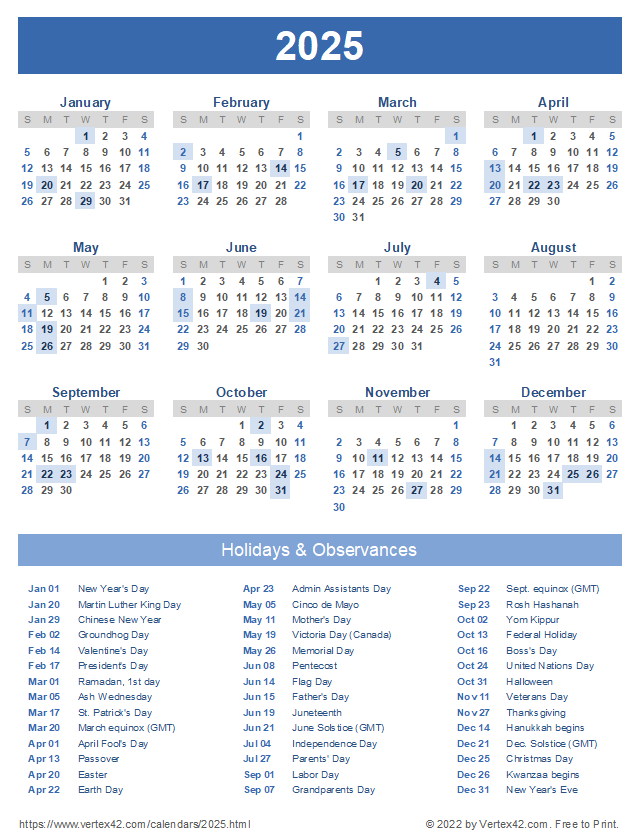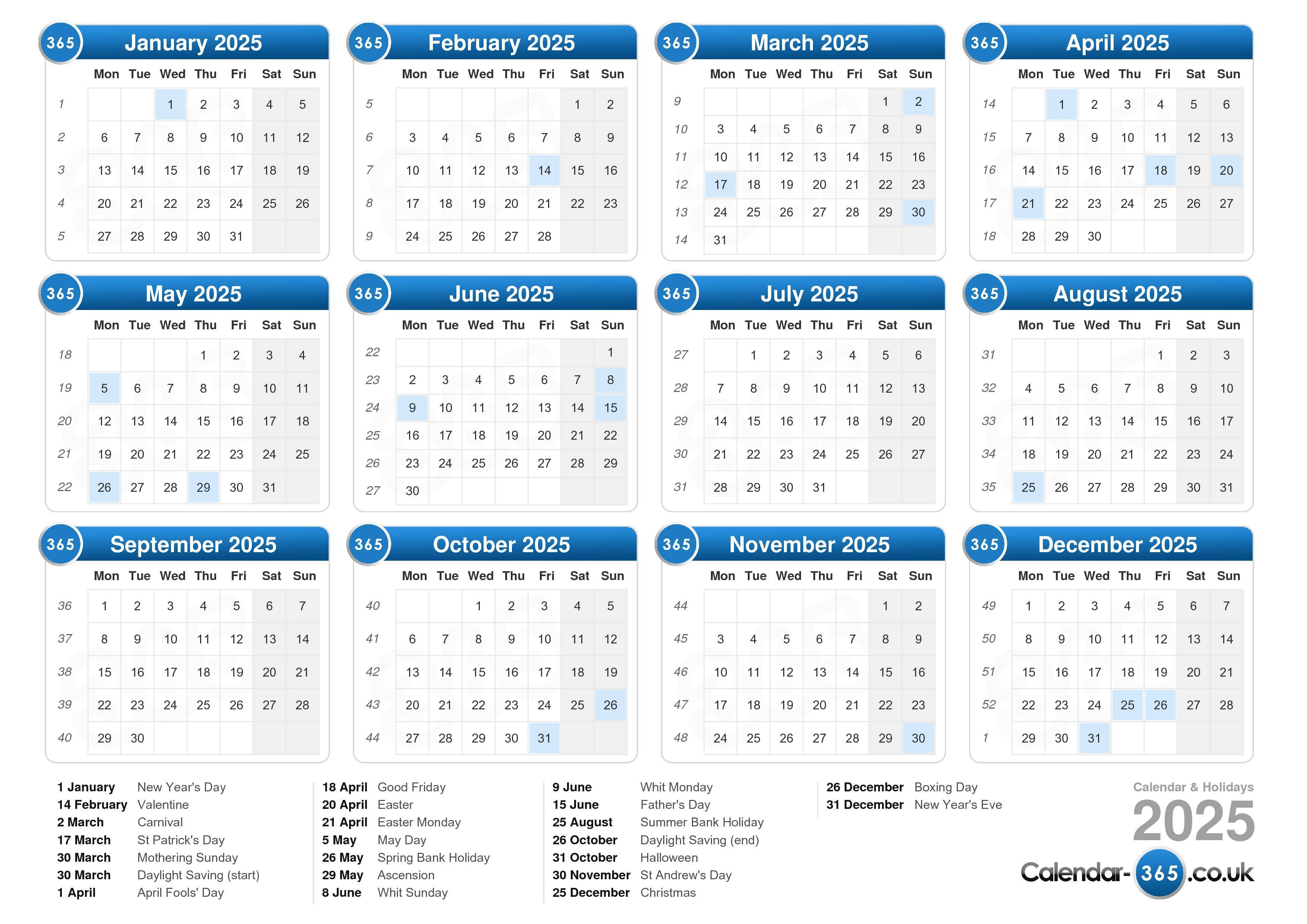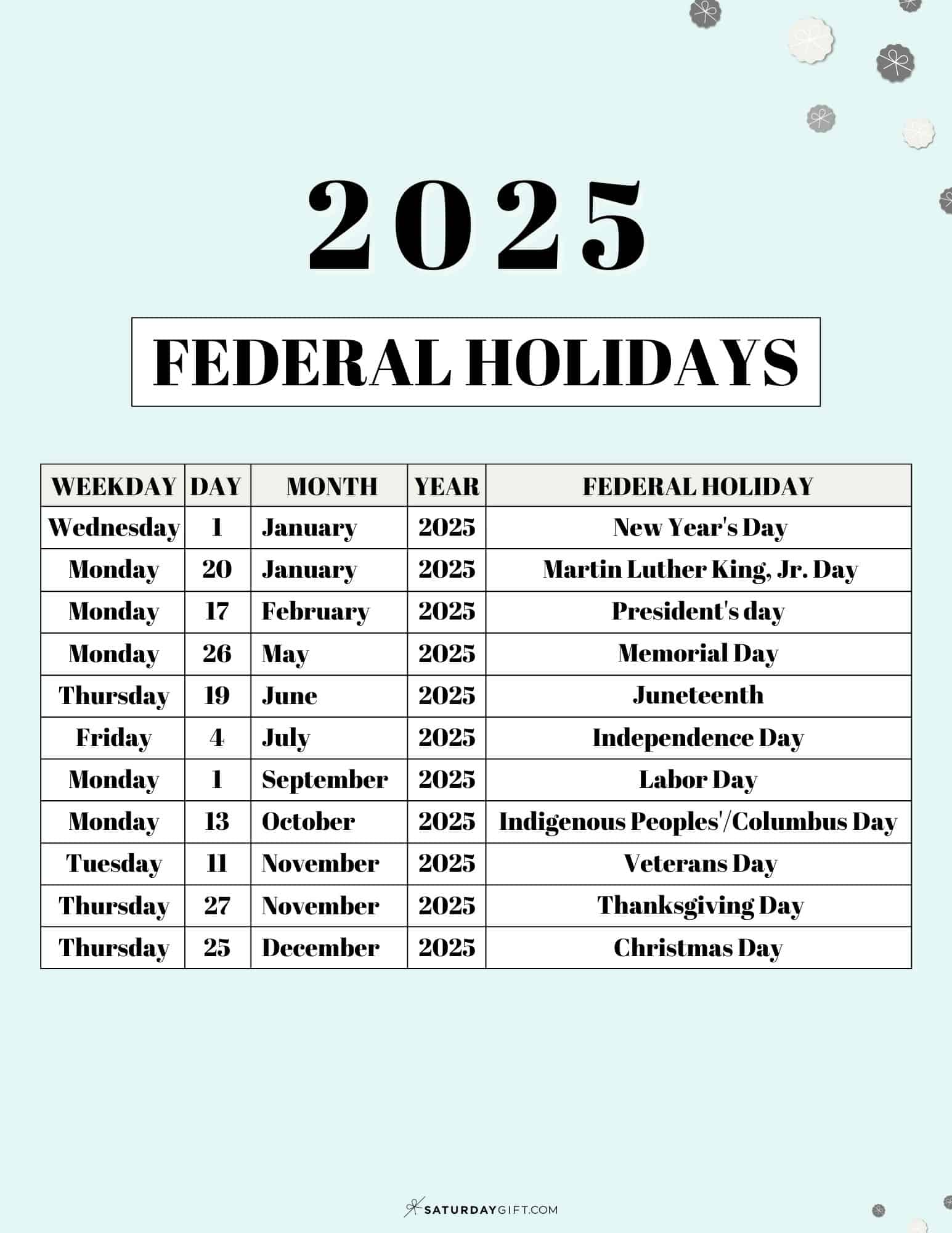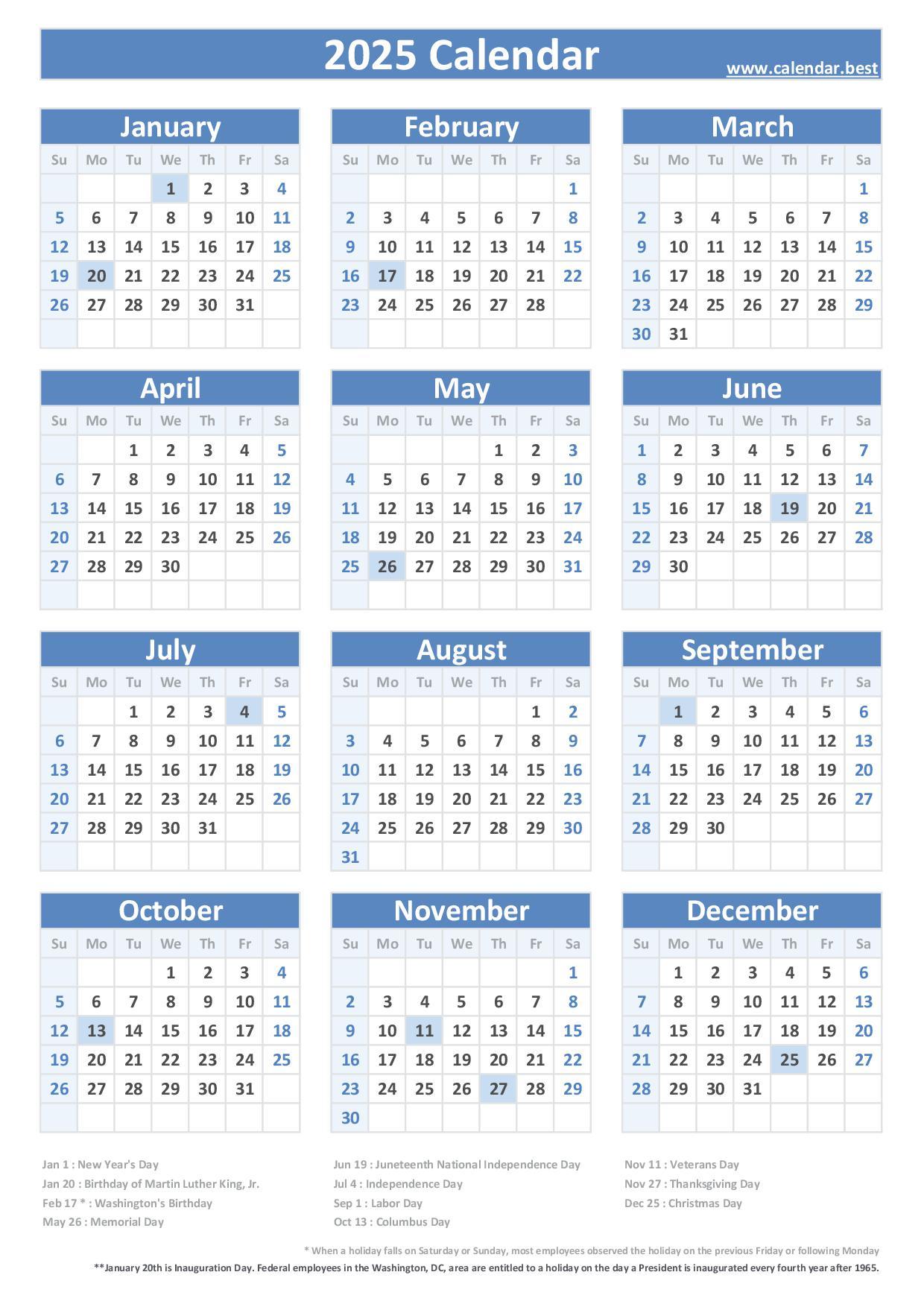Navigating The Calendar: Statutory Holidays In 2025
Navigating the Calendar: Statutory Holidays in 2025
Related Articles: Navigating the Calendar: Statutory Holidays in 2025
Introduction
With great pleasure, we will explore the intriguing topic related to Navigating the Calendar: Statutory Holidays in 2025. Let’s weave interesting information and offer fresh perspectives to the readers.
Table of Content
Navigating the Calendar: Statutory Holidays in 2025

The year 2025 presents a unique tapestry of observed days, each offering a blend of historical significance, cultural celebration, and much-needed respite from the daily grind. These designated days, known as statutory holidays, are woven into the fabric of national identity, providing moments of collective reflection and shared experiences. Understanding the nuances of these holidays is crucial for individuals, businesses, and organizations alike, ensuring seamless operations and effective planning.
A Glimpse into the 2025 Calendar:
The following is a comprehensive overview of statutory holidays in 2025, encompassing both federal and provincial/territorial designations:
January:
- New Year’s Day (Wednesday, January 1): This day marks the beginning of a new year, offering a chance for reflection, setting resolutions, and welcoming fresh starts.
February:
- Family Day (Monday, February 17): Observed in select provinces and territories, Family Day emphasizes the importance of familial bonds, offering a day for shared activities and strengthening relationships.
April:
- Good Friday (Friday, April 18): A significant day in the Christian calendar, Good Friday commemorates the crucifixion of Jesus Christ, observed with solemn reflection and religious services.
May:
- Victoria Day (Monday, May 19): This holiday celebrates the birthday of Queen Victoria, a pivotal figure in British history, and serves as a reminder of the nation’s historical ties.
June:
- Canada Day (Wednesday, June 1): A national celebration, Canada Day commemorates the anniversary of Canada’s confederation, a time for patriotic displays, community gatherings, and festivities.
August:
- Civic Holiday (Monday, August 4): Observed in select provinces and territories, Civic Holiday celebrates local achievements and community contributions, providing a day for local events and celebrations.
September:
- Labour Day (Monday, September 1): A day dedicated to recognizing the contributions of workers, Labour Day emphasizes the importance of labor rights and collective bargaining.
October:
- Thanksgiving Day (Monday, October 13): A national holiday celebrated in Canada, Thanksgiving Day offers a time for gratitude, feasting, and reflecting on the blessings of the year.
November:
- Remembrance Day (Wednesday, November 11): A solemn day of remembrance, Remembrance Day honors the sacrifices of those who served in wars and conflicts, offering a moment for reflection and gratitude.
December:
- Christmas Day (Wednesday, December 25): A widely celebrated holiday, Christmas Day marks the birth of Jesus Christ, often observed with family gatherings, gift-giving, and festive traditions.
- Boxing Day (Thursday, December 26): This holiday, celebrated in some provinces and territories, traditionally follows Christmas Day and offers a day for charitable acts and spending time with loved ones.
Navigating the Nuances:
It is important to note that specific statutory holiday observances may vary depending on the province or territory. While federal holidays are observed nationwide, some provinces and territories may have additional designated days, or variations in the date of observance. For instance, in some regions, Family Day may be celebrated in February, while in others, it may be observed in February. Similarly, the date of Victoria Day may vary slightly depending on the province.
Understanding the Importance:
Statutory holidays serve a multitude of purposes, extending beyond mere days off. They provide:
- Economic Stimulus: These holidays stimulate economic activity, as individuals engage in spending and leisure activities, boosting various sectors.
- Cultural Preservation: They serve as a vital mechanism for preserving cultural traditions, heritage, and historical significance.
- Social Cohesion: These shared experiences foster a sense of community and national identity, promoting social cohesion and shared values.
- Employee Well-being: Providing time for rest and rejuvenation enhances employee well-being, leading to increased productivity and job satisfaction.
FAQs about Statutory Holidays in 2025:
Q: Are statutory holidays mandatory for all businesses?
A: The observance of statutory holidays is generally mandated for most businesses, though specific requirements may vary depending on the province or territory and the nature of the business.
Q: What happens if a statutory holiday falls on a weekend?
A: In most cases, if a statutory holiday falls on a weekend, it is not typically observed as a paid day off. However, specific regulations may vary depending on the province or territory.
Q: Are there any exceptions to statutory holiday observance?
A: Certain industries, such as healthcare and emergency services, may have exemptions from statutory holiday observance due to the essential nature of their services.
Q: What are the implications of statutory holidays for employees?
A: Employees are generally entitled to a paid day off on statutory holidays, though specific regulations regarding pay and hours of work may vary depending on the province or territory.
Q: What are the implications of statutory holidays for businesses?
A: Businesses need to plan their operations around statutory holidays, ensuring that essential services are maintained and that employees receive the appropriate compensation and time off.
Tips for Effective Planning Around Statutory Holidays:
- Stay Informed: Regularly consult official government sources and labor regulations to stay updated on statutory holiday observances and related regulations.
- Plan Ahead: Anticipate the impact of statutory holidays on business operations, staffing, and customer service, and make necessary adjustments.
- Communicate Clearly: Clearly communicate statutory holiday policies and procedures to employees, ensuring transparency and understanding.
- Consider Alternative Arrangements: Explore options for maintaining essential services during statutory holidays, such as rotating shifts or providing alternative arrangements.
- Embrace the Opportunity: Utilize these holidays as opportunities for team bonding, employee appreciation, or community engagement.
Conclusion:
Statutory holidays play a vital role in shaping the social and economic landscape of Canada. They provide opportunities for rest, reflection, and celebration, fostering a sense of community and national identity. By understanding the nuances of these holidays and effectively planning around them, individuals, businesses, and organizations can navigate the calendar seamlessly, ensuring a harmonious blend of productivity and well-being.








Closure
Thus, we hope this article has provided valuable insights into Navigating the Calendar: Statutory Holidays in 2025. We thank you for taking the time to read this article. See you in our next article!
You may also like
Recent Posts
- Exploring The World In February 2025: A Guide To Travel Destinations
- Navigating The Summer School Holidays In The UK: A Comprehensive Guide For 2025
- Navigating Singapore’s Public Holidays In 2025: A Comprehensive Guide
- A Comprehensive Guide To Skiing Holidays In January 2025
- Embracing The Winter Wonderland: A Comprehensive Guide To Ski Holidays In January 2025
- Tenerife In April 2025: A Springtime Escape To The Canary Islands
- The Future Of Travel: A Look At Holiday Trends For 2025
- Unveiling The World Of Travel: An Exploration Of Thomas Cook’s 2025 Brochure
Leave a Reply